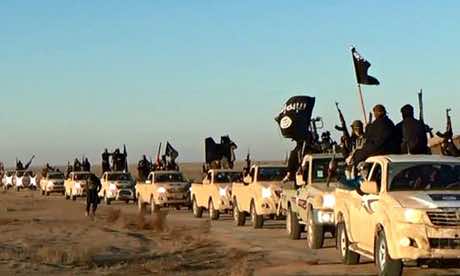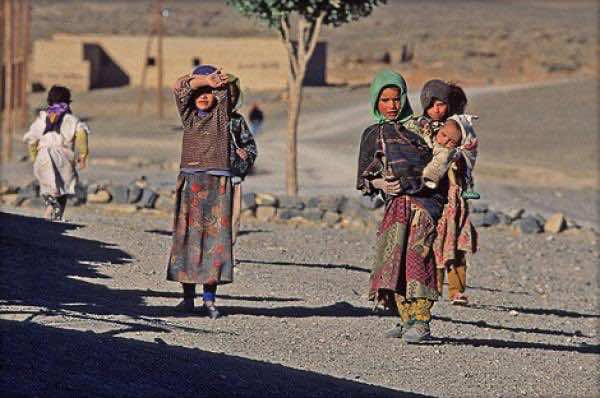
By Zahra Astitou
Granada – It is the day of Eid Al Adha; all the family members have woken up early and the spirits are high. The women are preparing a delicious, elaborate breakfast and the men make their way to the mosque for the Eid prayer and the sermon afterwards.
When the men come back from the mosque, a member of the family or a butcher then sacrifices the ram. Sometimes you can even see a butcher roaming the streets to sacrifice the animal for those families who don’t have anyone fit in their family to do it for them. It is then that people–neighbors, family, friends–start visiting and greeting each other, wishing everyone a happy ´Eid while enjoying Moroccan tea with delicious homemade pastries in each other’s company.
This has been a typical Eid Al Adha celebration for most of Ouafa´s (27) life in Er-Rachidia, where she is originally from. When she moved to Granada, Spain, for her studies, she got immersed in an entirely different community: That of the Spanish converts who frequent the famous mosque of Granada, La Mezquita Mayor.
[caption id="attachment_141263" align="aligncenter" width="720"] The Mezquita Mayor in Granada[/caption]
The Mezquita Mayor in Granada[/caption]
“Celebrating Eid outside of Morocco is different”, she says. “My first Eid celebration here was a little hard, because I was used to spending it with my family. Once I got to know the Muslim community of Granada, though, I slowly started to adapt myself to the change and thought that at least now I can spend it with fellow Muslims and that alone was quite an improvement.” According to Ouafa, one of the main differences between celebrating ´Eid in Morocco and in Spain is that in Spain one cannot sacrifice the ram at home as it is prohibited by law, so it has to be done through a slaughterhouse.
Born and raised in Amsterdam, the Netherlands, Mariam (20), whose parents are from Boumalne Dades, recounts a similar experience of celebrating Eid in Morocco, although it was Eid Al Fitr, the Eid that comes after fasting the month of Ramadan. “After the men come back from the mosque, family members start visiting each other and the youth visits both the elderly and relatives that are ill,” Maryam says. “You see so many people dressed in white garments on their way either back to home or to visit a loved one. Everyone greets one another, all the front doors of the neighboring houses are wide open, and later that day everyone goes home to eat some tajine before they continue with visiting other people”. Mariam found it especially interesting that people visit and greet each other, even if they don’t really know each other that well. “That is not really something that would happen this easily in the Netherlands,” she explains.
Both Ouafa and Mariam mention that in their respective city and town in Morocco it is not a custom for women to go pray the Eid prayer at the mosque. Mariam: “That really is a pity, because in the Netherlands women are accommodated to go pray the Eid prayer in congregation.” Ouafa: “With me it has to do more with the fact that it is not a custom at my house for me and my mother to go pray the Eid prayer in the mosque. That is one of the things that I really found great about celebrating Eid in Granada; the first time I prayed the Eid prayer was here.”
Mariam: “In Holland we celebrate ´Eid by waking up early to attend the Eid prayer. Everyone greets one another after the prayer and then heads home. We wait for members of our family to come visit us, and everyone brings delicious homemade sweets with them that were prepared prior to Eid, and we then commence with a delicious breakfast meal. The ram is sacrificed at the slaughterhouse and either delivered home or picked up by a family member. All children get presents, and in the evening we all go visit acquaintances and family that we haven’t seen yet.”
Fatima (27) from Frankfurt, Germany, whose parents are from Nador, states that her family, too, wakes up early. The women prepare the house for the guests by placing cookies and sweets everywhere for their kids. “My mother prepares food, traditionally always couscous, and other side dishes that can vary,” she says. Everyone puts on new clothes and her father and brothers leave early to the mosque for the Eid prayer.
Rajae (25) from Lyon, France, whose parents are from Fez, recounts a similar tradition. Fatima and Rajae continue that the men go to the farmer after the prayer to make the sacrifice. Upon their return they greet each other with ´Eid greetings and call family and friends to also greet them. In Fatima´s case, the guests come to their house, but in Rajae´s case, her family goes to visit her aunt who lives ten minutes from their house and they also go visit friends. All the children receive gifts like clothes, toys or, more commonly, money.
Although she never witnessed Eid in Morocco, Rajae thinks that it differs from celebrating it in France: “There is a whole different atmosphere, I think, because people have free days and the Eid is celebrate in the entire country with the majority of people celebrating it.” Mariam compares: “Although there is a special atmosphere to celebrating Eid in Morocco, it feels more familiar and homely celebrating it in Holland. You get to meet up with friends and hang out together in the afternoon, and that’s how I have celebrated Eid all my life.”
© Morocco World News. All Rights Reserved. This material may not be published, rewritten or redistributed





















